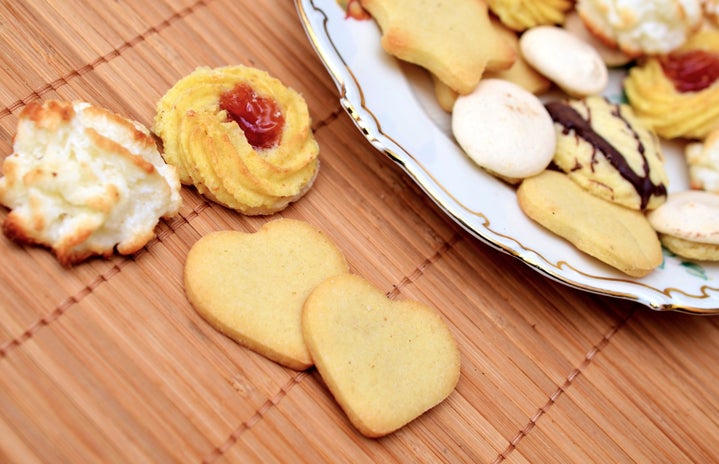December can be stressful for any family. However, the Christmas period can be particularly difficult for those who suffer with an eating disorder. The changes in routine, expectations around social and family life, and the large build up to Christmas can readily contribute to pressure and stress, especially as the festive season can be food-centric at times. Excitement at family meetups can become tinged with fear about expectations surrounding food. While not everyone is the same, and it is important to cope in a way that suits you, below are a few ways that help some sufferers cope during the festive season.
Thoughts and Feelings
Luckily around Christmas time it is rare to be alone – as isolation can be a trigger for many people, this can actually be beneficial to some people. However, the stress and hectic nature of the festive season can result in negative thoughts. To combat this, it is important to emphasise to yourself that Christmas is a season of your own traditions. The context of food and meal times, can certainly be set apart from the Christmas season, and can be seen as a smaller part of the day as a whole. Moreover, it can be helpful for you and your family to consider Christmas as just one of 365 days of the year; perspective is so important. If it becomes a pressure-point then it can be useful to have a conversation with relatives about the impact high expectations and a stressful atmosphere can have, to help them adjust their own modes of thinking. Try not to anticipate what the day will be like, as this can cause distress or expectations may not always be met.
Routine
Disruptions of routine can certainly be prominent during in the Christmas period. Whether this is moving back from university to home, or just changes in general day-to-day patterns, such disruptions can cause some level of stress. There are certainly things you can do to combat such stress which may become a trigger. Firstly, it is important to try and not let the idea of Christmas fully dictate your days running up to it; try and keep your routine as similar to the rest of the year as possible, but understand this might always not be possible. The same goes for Christmas day itself; find balance between sticking to this routine on the day, as well as allowing for some flexibility. Attempt to keep the Christmas day enjoyable, but simultaneously not cause distress.
The post-Christmas period can also be, for some, a disruptive influence to routine. With the stress of exams, New-Years resolutions and an emphasis on dieting, one can feel isolated and pressured. Make sure there is a strong support system in place for you – whether this comes from friends, family or professional help.
The Food
Unfortunately, for many families a large and important aspect of Christmas is the food. With food on Christmas it’s important to remember the smallest achievements are things to be proud of. Discuss plating and portion sizes with your parents in advance; though for many this can be a source of conflict, it can be highly useful. For example, if you agree parents will plate up everyone’s food, then this might be helpful in that you won’t be worrying about portion sizes and feeling anxiety surrounding this, but you aren’t singled out as everyone gets the same treatment. Understand your personal triggers, and discuss these in advance. It may be helpful during the meal, to sit next to someone you trust and know will support you. Furthermore, during the meal itself put some music on, or try and discuss light topics so you are distracted from anxieties. If this is something that also needs to be discussed in advance that is great; having open and honest conversations about expectations and things that may help if so important for your own personal comfort.
Family
A significant aspect of Christmas is the emphasis placed on surrounding oneself with family and friends. While this can be nice and enjoyable catching up with family members, it can also be quite daunting. If these are not close relatives or relatives that haven’t been seen in a long this may result in angst about seeing them, and nerves about comments they might make (however well-meaning they may have been). Eating around people who they don’t normally share meals with can also cause anxiety. One thing that can help is to have a discussion with immediate family prior to Christmas meals about who will be invited – if you don’t feel comfortable eating around certain people, or feel this may be a pressure point, openly talking to parents or siblings may help this. Similarly, talking to relatives about what type of comments may or may not be helpful is important. A short explanation about how “harmless” comments, even such as ‘you look well’ can be misconstrued and damaging will really help relatives to understand.
The most important thing to do is make sure you do whatever you are comfortable with. While these tips have helped some, they may not necessarily be right for you. The most important thing in the run up to Christmas is just to be yourself, and try to relax amongst what can be a hectic time. Many people experience an eating disorder, and understand the experience. Remember you are your own biggest faultfinder, so don’t be so hard on yourself, and be mindful of your inner-critic. For more support, you can visit any of the websites below. Happy Christmas.
http://www.leicestereatingdisorders.co.uk/uploads/uploads/coping_with_christmas.pdf
https://www.nhs.uk/conditions/eating-disorders/
http://www.seedeatingdisorders.org.uk/page/coping-with-christmas
(image: http://tabithafarrar.com/wp-content/uploads/2016/12/Adobe-Spark-22-1170x…)


